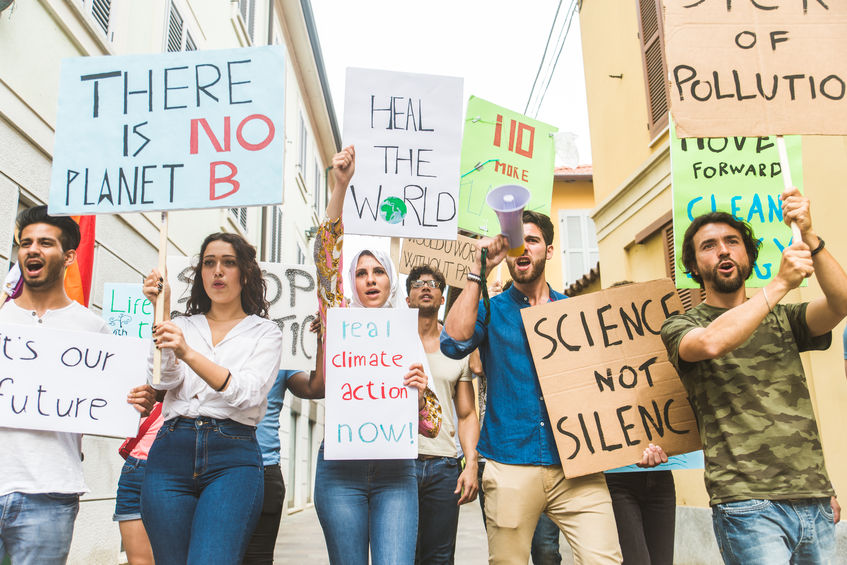As the Biden-Harris administration prepares to take over the federal executive branch next month in Washington, the main levers for bureaucratic control over climate change may come from the U.S. Treasury, Federal Reserve and other financial regulatory agencies, rather than the Environmental Protection Agency or the Interior Department.
This approach to purportedly deal with man-made climate change will have much larger, more ominous impact on the economy and capitalism itself, which is the ultimate goal of so many Green advocates.
Joe Biden shows no sign of lessening his commitment to “fighting” climate change, starting with rejoining the Paris Climate Accord to curb carbon emissions, and appointing a slew of climate change extremists. As a lifelong, malleable politician, Biden knows well a big reason for his election is the money and influence of the millionaire and billionaire class pushing the Green agenda.
The cottage industry of Green interest groups is increasingly looking beyond the garrulous Kerry’s feckless diplomacy or whether the EPA makes hydro-fracturing financially harder with increased regulatory costs. Rather, they have their sites on capitalism itself, the life-blood of which is the large and complicated financial sector.
National governments, especially economically large nations like the United States, have always had significant control over their respective private economy; namely, to the extent it is a private economy. Pure, unfettered capitalism exists nowhere on Earth. The degree of government control of U.S. economy ebbs and flows at the margins, depending on who is president.
The level of taxation, degree of regulation, financial disclosure and borrowing requirements, emission levels, hiring and labor practices, safety standards and much more remain substantial in the U.S., but will vary with changes in administrations. Politicians who routinely rail against corporations, profits and capitalism usually ignore this reality.
Many of the crusaders to stop climate change were never merely about lowering the global temperature by a degree or two. They are about a transformation of society and the capitalist system, which will take more than tightening of regulations on methane or restricting oil drilling.
Former Vice President Al Gore, for example, wrote earlier this year that corporations should “accelerate their efforts on climate action [and] all investments made today must factor in long-term climate and societal implications.”
International bureaucrats from the United Nations and global non-governmental organizations are openly promoting what they call the Great Reset to transform capitalism and the world economy under the guise of fighting Covid-19, climate change and income inequality, among other benign-sounding objectives.
Asked why he robbed banks, that famous thief of yesteryear, Willie Sutton, gave the unvarnished answer, “that’s where the money is.” The regulatory and oversight power of government can set standards to penalize companies that are not sufficiently “Green” or environmentally friendly in their portfolio and effectively force a reallocation of capital. To that end, expect the new Biden-Harris administration to go beyond mere government budgets and spending on Green initiatives by directing trillions of dollars in private assets from banks, hedge funds and other financial institutions away from fossil fuel-related investments and toward a Green global transformation. Already in the U.S. Senate, Democrats are pushing for regulatory changes to force this exact outcome.
Government’s heavy hand on the private sector in pursuit of a climate agenda is not limited to the United States. Central banks throughout the world are joining the Network for Greening the Financial System, which is starting to claim “climate change risks” to the financial system.
Such central planning to manipulate financial markets for climate purposes by the incoming Biden-Harris administration and other nations constitutes a major risk to economic growth and stability, particularly regarding the ability of individual Americans to invest and save using 401-k’s and other retirement savings vehicles. The U.S. government has a history of meddling in financial and housing markets that have not ended well.
The private sector and capitalism generally got mostly blamed for the 2008 financial meltdown. Yet, it was years of government policies of artificially low interest rates and housing investment incentives and guarantees that induced the private economy to borrow and invest to the point of creating a real estate market bubble that burst with a ripple effect throughout the economy. With the burgeoning efforts to regulate the financial sector to implement climate policies, count on history repeating itself.
The Green agenda for a “sustainable” planet has long been more about societal transformation, and less about a cleaner planet. Its proponents are upping the ante with the growing effort to force financial institutions to fight climate change as governments direct. Manipulating private sector capital formation for social or Green objectives is a powerful tool that is far more likely to bring economic harm than planetary health.
